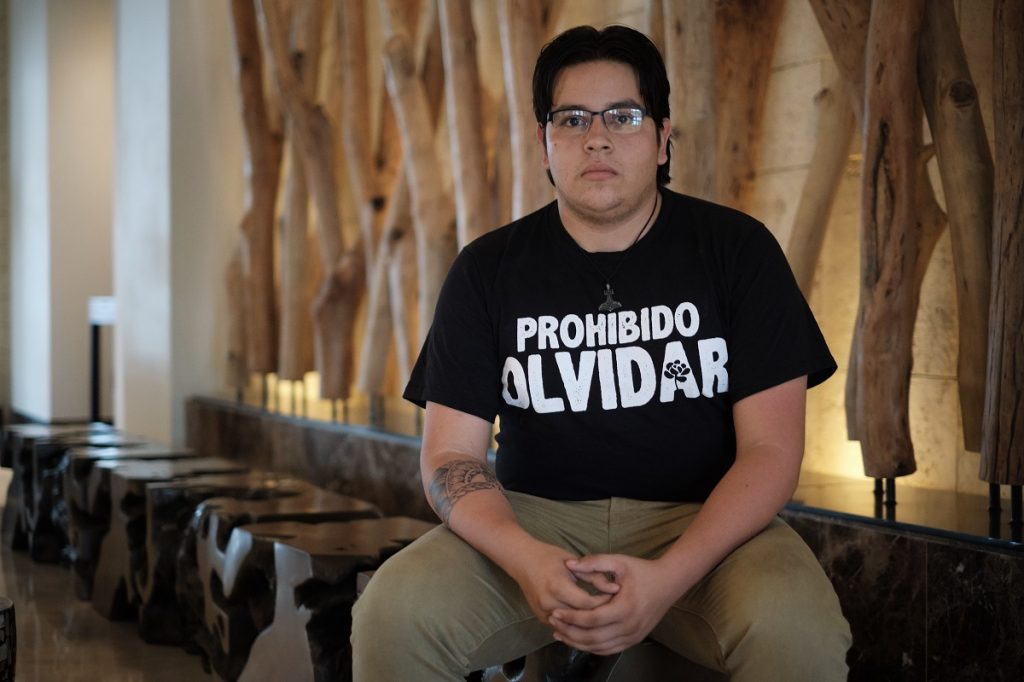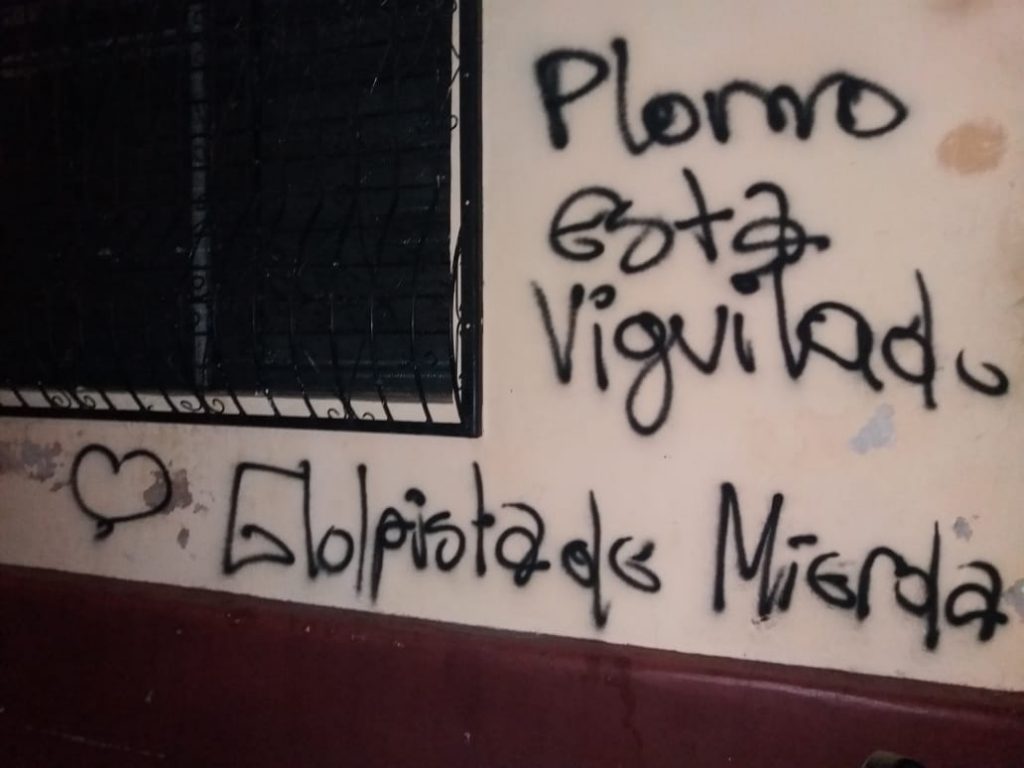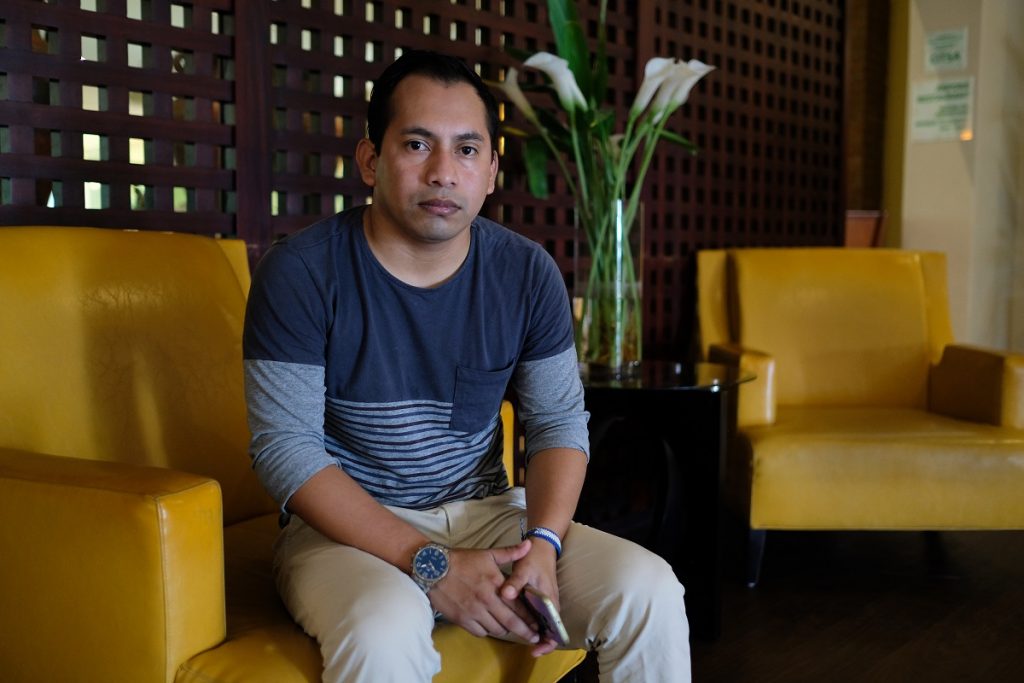25 de septiembre 2019

Children of Exile: The Births “Sowing Hope” in the Camp of Nicaraguan Farmers

PUBLICIDAD 1M
PUBLICIDAD 4D
PUBLICIDAD 5D
Testimony from activists, journalists and political figures who’ve come back to continue the civic protest, but who now face persecution and harassment

They fled Nicaragua to save their lives, hold onto their freedom and their physical integrity. In exile, some slept on the cold streets of the Costa Rican capital with empty stomachs. Others, from the United States, fostered the international denunciation of the violations of the Ortega-Murillo regime. However, impelled by the need or the desire to be in their own country, some exiles return to Nicaragua, despite the lack of guarantees. Today, they face persecution and harassment, aggression or even jail.
The released political prisoner Alex Hernandez was one of the first exiles to return. When he crossed the border that divides Costa Rica and Nicaragua, via an unmarked point, his cardiac rhythm accelerated and he took long strides to speed up the fatal denouement, thinking that the police would take him back to prison or that Ortega’s paramilitary could kill him. He returned because he missed his family and because he felt impotent in exile, “watching it all from a safe distance.”
In exile, “you see things playing out, and you can’t do anything except worry and make sure your immediate circle are okay,” Hernandez says.
In Nicaragua, he also can’t do much: he receives constant threats, his house is watched by the police, and he can’t move freely around his city. Nonetheless, he’s an active participant in several movements that have organized against the regime. He lives in safe houses and occasionally visits his family.
The need for his family also brought back university student Roberto Bushting. It wasn’t easy for him to tear himself away from a place he felt safe to confront the risks that a return to Nicaragua implies. However, the emotional burden was very heavy, and he was convinced that fear is “the principal barrier” that keeps the exiles from returning.
“The struggle is here in Nicaragua. In exile, you can also work, but when you’re fully involved, with your whole heart in this, you have to be there on the ground,” Bushting emphasizes. Since he returned, he’s participated in a number of organized movements against the regime, but he tries to keep a low profile and he also remains sheltered in safe houses. The work he’s doing is similar to what he was doing in exile, but “here my family supports me. They won’t abandon me,” he comments.

University student Roberto Bushting is one of the youth who returned from exile. Photo: Carlos Herrera.
Another Nicaraguan who returned to continue fighting for the public liberties is Anibal Toruno, director of the radio station Radio Dario. His return was just the opposite of those who crossed the border surreptitiously, but his fears and uncertainty were the same. Upon his arrival in Nicaragua, Toruno attempted to return to Leon, his native city, but he was received with a hail of rocks from the Ortega-commanded paramilitary.
The return “was challenging” he feels. “It was like being back in the days of ‘Operation Clean-up’, seeing death squads on motorcycles, authorized to shoot, to kill, to attack,” he describes.
The businessman and journalist decided to face the risk, because exile had been an emergency exit. At the same time, he found exile to be “a very tough experience.” “You miss everything, and nothing is the same as in our country, even with our difficulties, with our differences, with the dangers that we’re facing,” he recounts.

Fanatics from Daniel Ortega’s regime painted threatening graffiti on the walls of Radio Dario and the home of its owner. Courtesy photo / Confidencial
In April of this year, the Ortega regime proposed a “Plan for a safe return” for those in exile. The proposal was made within the framework of the then-ongoing negotiations with the Civic Alliance for Justice and Democracy. The negotiations were suspended in May, and the proposal was rejected by different organizations who complained of the lack of conditions for the exiles to return to the country.
Attorney Julio Montenegro of the group Public Defenders explained that the distrust in the Plan of return is due to the fact that the people that are inviting the exiles to return to the country “are authorities that in one way or another have lost the citizens’ trust. When we see concrete activities on social media, where people are being harassed, detained, beaten, mistreated when they’ve tried to carry out some kind of civic protest, well this generates some fears.”
Vilma Nunez, president of the Nicaraguan Center for Human Rights (Cenidh), agrees that there are no guarantees, and because of that she feels that the return of the exiles is a personal and voluntary decision.
The veteran defender of human rights is following closely the return of the exiles, because she’s close to the issue: the majority of her advocates are currently exiled in Costa Rica. “What wouldn’t I like better than to see them come back: Gonzalo (Carrion), Wendy (Flores), the young kids… but honestly it scares me,” underlines Nunez.
An example of the danger that the exiles who opt to return to Nicaragua face is the case of Ulises Rivas, who was detained by the police on September 1st. Now the prosecutor is accusing him of stealing a hat and slightly wounding a foreign couple. The incident in question occurred two years ago. His family members state that the event he’s accused of is false and expresses their concern, because he was beaten by the officials who detained him.
Zayda Urbina, Rivas’ aunt, complained that her nephew returned to the country due to his father’s terminal cancer. After returning from his exile, Rivas remained discretely in his native Santo Domingo in Chontales department. Despite this, he was arrested by the police while watching a baseball game in the municipality of Comalapa.
Maria Gomez met Ulises Rivas during a march held by the exiles in Costa Rica; from that moment on, they became friends. He returned to Nicaragua because of his father’s illness, and two days later, she did the same due to a different family problem. The arrest of her friend has pained her greatly because “he doesn’t have a mother, his father died two months ago, and he’s a kid who doesn’t deserve this,” she comments while choking back tears.
Gomez faces her own risks. She knows that her neighbors watch everything she does, but she tries “not to pay them any mind”. She’s convinced that she shouldn’t get into a discussion nor “show fear”, of either them or the police who constantly hound her in her neighborhood. “I know that at any moment a patrol car could come and take me away,” but also “I know that someday I can get out of jail, but not out of the cemetery,” she reflects.
Returning to the country also implies the challenge of readapting to the daily routine. Some have to start from nothing, with no jobs or security and having to bear the stigma or the criticism of others.
“When you go into exile, they tell you that you left because you were a coward, that the struggle is going on here… but if you make the decision to return, they say that you’re supporting the idea that everything is back to normal, that you’re a sell-out,” Alex Hernandez states regretfully.

Former political prisoner Alex Hernandez, one of the first exiles to return. Photo: Carlos Herrera
Getting a job is not likely. Jobs are scarce due to the economic crisis and living under constant watch makes the search more difficult. The difficulties are still greater for those who lost their homes, had to abandon their studies, or have to remain in safe houses.
But despite the risks, the exiles who’ve returned defend their decision. Although he’s suffered aggression, the director of Radio Dario assures that “returning was worth it” and that the decision “is gratifying when there are ideas and principles behind it, because I’m not here thinking about getting a good position, nor about politics. I’m here out of love for my country.”
Archivado como:
PUBLICIDAD 3M
Confidencial es un diario digital nicaragüense, de formato multimedia, fundado por Carlos F. Chamorro en junio de 1996.
PUBLICIDAD 3D